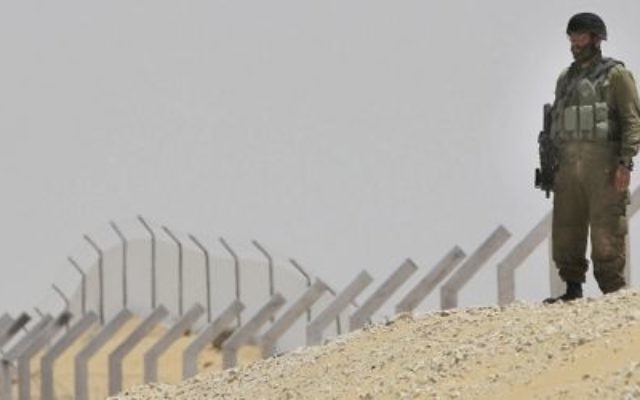Fence seals Egyptian border
Israel completed a 140-mile fence last week, bringing it close to sealing off its border with Egypt.
Israel completed a 140-mile fence last week, bringing it close to sealing off its border with Egypt.
“Just as Iron Dome defends Israel’s skies, the fence is an iron wall defending Israel’s border,” said Eran Ofir, head of the military-run Fence Construction Authority, at a ceremony to mark the completion.
In March 2010 Israel’s Cabinet approved a plan to seal the country’s southwest border, which was then secured only by patrols and monitoring devices. Prime Minister Benjamin Netanyahu presented the decision as necessary to protect Israel’s Jewish majority, arguing that the problem with Israel’s southwest border is that, since it is one of the few places where people journeying on foot from Africa can enter a Western country, many Africans go there to enter Israel.
Since he took the decision, the regime change in Egypt and the unrest in Sinai that followed meant that the fence has also become a priority for security reasons.
The fence has significantly cut the number of asylum seekers crossing to Israel. In January 2012, 2,153 undocumented people entered Israel, compared to the 36 who entered last month – all of whom were placed in detention.
Prime Minister Benjamin Netanyahu emphasised this change, and said that he plans to deport asylum seekers who have made it to Israel. “For seven months, not one infiltrator has reached Israel’s cities,” he commented. “Just as we have stopped infiltration into Israel’s cities, so too will we succeed in the next mission – repatriating the tens of thousands of infiltrators in Israel to their countries of origin.”
He went on to suggest that border fences are important for Israel’s future. “We also need to complete the work on the country’s other borders,” he said.
The new fence is made up of 45,000 tons of steel and enough earth to fill 1.67 million trucks. More than one hundred contracting companies were involved in the project. The new barrier consists of a five metre high fence, a multi-layered barbed wire fence, a road of dirt or sand depending on the place, and a patrol path including an asphalt track. It is monitored by communications infrastructure including information collection points, cameras and radar. A final 7.5 miles of fence will be finished by May, completely sealing the border.
Some Israeli human rights groups have voiced reservations about the sealing of the border. “Israel’s sovereign right to build a fence along its border does not absolve it of its obligations under international law to make individualised determinations of asylum status for refugees who arrive at its international crossings,” Oded Feller, lawyer for the Association for Civil Rights in Israel, commented to The AJN.
NATHAN JEFFAY
An Israeli soldier stands guard at the fence constructed on the Egyptian border.


comments